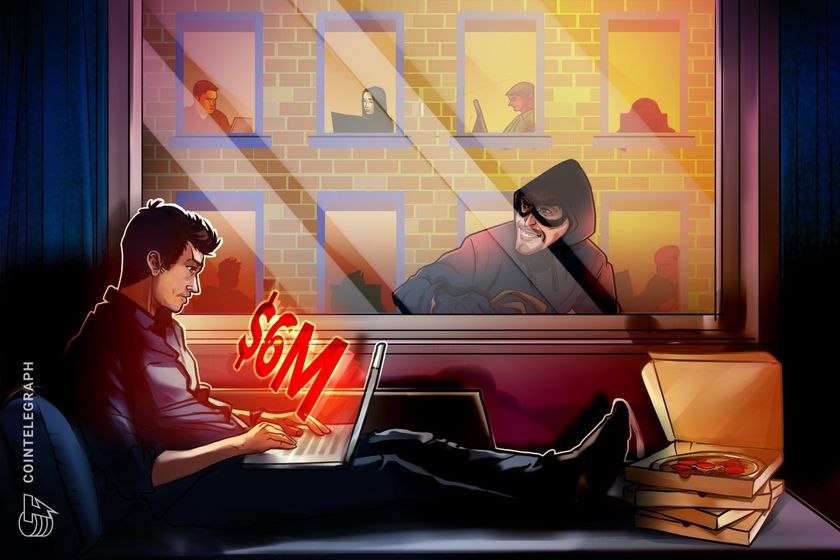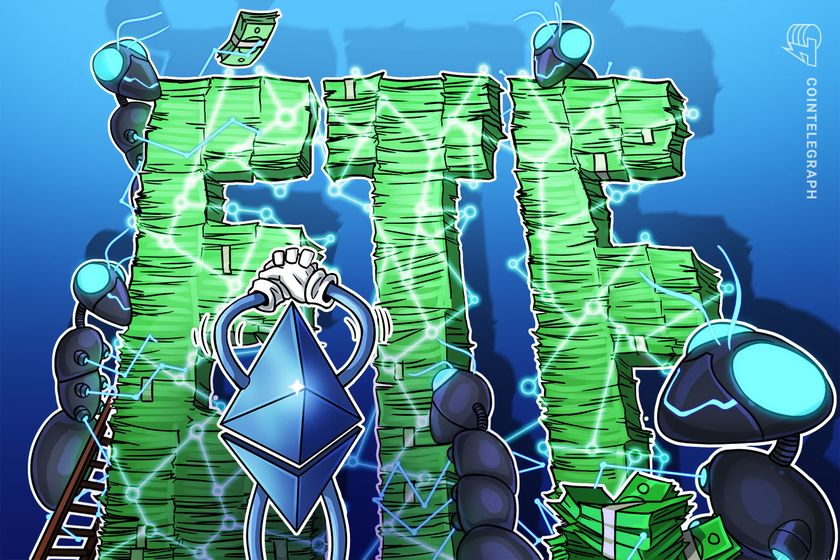Ticketing platforms use blockchain to engage with customers post-pandemic

Will blockchain technology help revitalize the concert and event industry through customer engagement?
The year 2020 was certainly lonely for many people around the world, as the COVID-19 pandemic resulted in the cancellation of almost all social events and gatherings. As a result, online events have become the new normal for almost every industry. While some may view this as an innovative development, many industries have struggled to exist due to a lack of ticket sales for events.
For instance, the billion-dollar concert and event promotion industry has seen a decline in revenue at an annualized rate of 11.5%, reaching $17.1 billion in 2021. Data further shows that this decline is a direct result of the coronavirus. Despite COVID-19 vaccination rollouts, a number of major live events are still being canceled.
Blockchain for the ticketing industry
Given the current circumstances, ticketing platforms are seeking new ways to ensure revenue growth and customer satisfaction, while being able to adapt to today’s digital economy. Blockchain technology, in particular, is being leveraged by major ticketing platforms as a solution to deliver digital tickets, special offers, updates and more to event-goers.
For example, Live Nation Entertainment — one of the world’s leading live entertainment companies consisting of Ticketmaster, Live Nation Concerts and Live Nation Sponsorship — will use a blockchain network to engage, communicate and reward ticket holders moving forward.
Specifically, Live Nation SAS (France) will leverage TixTo.Me, a digital entertainment wallet created by the ticketing company FanDragon Technologies and Aventus Network, a layer-two blockchain protocol.
Alan Rakov, CEO of FanDragon, told Cointelegraph that Live Nation France wanted to find a way to retain its ticket holders, noting that the single biggest issue facing the ticketing industry in 2020 was refunding ticket holders for concerts that were canceled due to the coronavirus:
“We use blockchain to make sure we know who a ticket holder is, and then to deliver engaging messages to help them retain their ticket. We can even send ticket holders new tickets via the blockchain for when an event is rescheduled.”
Rakov explained that TixTo.Me ensures all tickets and vouchers are secured on a single platform, regardless of where they were purchased. “Blockchain is leveraged as a verification device between ticketing and fans. Fans simply enter a barcode and then we verify that information to issue a ticket on the blockchain,” said Rakov.
The Aventus Network then processes each transaction. Live Nation France is expected to deliver hundreds of thousands of tickets per year via the TixTo.Me digital wallet.
Engaging with ticket holders via a blockchain network
While innovative, it’s important to point out that using a blockchain network to issue secure, verifiable tickets is not a new development. For instance, in December 2019, Ticketmaster’s vice president of blockchain products explained how the company has been utilizing blockchain for pilot use cases.
The Union of European Football Associations, or more commonly called UEFA, also announced in February 2020 that 1 million soccer match tickets would be distributed to fans via a blockchain-enabled mobile application.
Although the concept of issuing tickets through a blockchain network has been done before, the COVID-19 pandemic has created the need for customers to retain their tickets. As such, innovations like TixTo.Me are going a step further by allowing organizations and artists to directly send ticket holders special offers, updates and engaging content to ensure retention. Rakov mentioned:
“Live Nation France can engage with their customers through brand offers and advertising, which is a big leap for the industry. We now have a whole content delivery system through a streaming ticket within a mobile app.”
In addition to Live Nation France, the Boston Symphony Orchestra, or BSO, also plans to use blockchain to enhance ticket delivery later this year. The BSO recently formed a partnership with True Tickets, a blockchain-based ticketing platform powered by Hyperledger Fabric, to create a ticket-buying experience to meet post-COVID-19 requirements.
Matt Zarracina, co-founder and CEO of True Tickets, told Cointelegraph that the solution will enable the BSO to gain better knowledge into who possesses a ticket from point-of-sale to when tickets are scanned:
“This efficiently allows the BSO to understand who actually attends a performance. This solves some of the common challenges that venues face today, including reclaiming control of tickets from the secondary market while providing better visibility into who a venue’s patrons are.”
While True Tickets’ blockchain platform will ultimately allow BSO patrons to bypass will call and physical ticket transactions, digital ticketing will also let the BSO communicate with ticket holders before, after and during events. Ticket holders will directly be informed of updated policies and procedures regarding pandemic-related protocols. The True Tickets platform will also inform individuals about plans for reopening, which is expected to happen this summer at Tanglewood, the BSO’s home since 1937.
Concerns regarding consumer privacy
Although a number of major ticketing platforms have begun leveraging blockchain, concerns around data privacy remain. This shouldn’t come as a surprise, though, as data privacy laws remain fragmented, while new technologies, such as blockchain networks continue to be targeted by sophisticated hackers.
Alan Vey, co-founder and CEO of Aventus Network, told Cointelegraph that FanDragon ensures that there is a cryptographic link to each digital ticket, along with proof of association with each user in the FanDragon system. However, no personally identifiable information is present in the blockchain’s public domain.
Rakov further remarked that FanDragon is compliant with the General Data Protection Regulation in the European Union and that the platform itself does not sell tickets. “Different companies sell their own tickets; we just deliver these. We don’t have any transactional level data.” Echoing Rakov, Zarracina noted that True Tickets neither captures nor stores personally identifiable information from venue partners or clients.
Moreover, platforms such as TixTo.Me and True Tickets may very well enable a new era of digital ticketing. According to Rakov, Live Nation France is currently using TixTo.Me, and the company plans to incorporate new features to meet Live Nation’s ongoing needs.
Zarracina further shared that True Tickets’ venue partners have gone from seeing the company’s service as “nice to have” to a requirement due to the pandemic:
“While the doors have been shut on the majority of live events, there has been an acceleration in technological and digital transformation behind the scenes. We have a number of new partners that we will announce this year, adding to a roster of venues that are working with True Tickets.”









